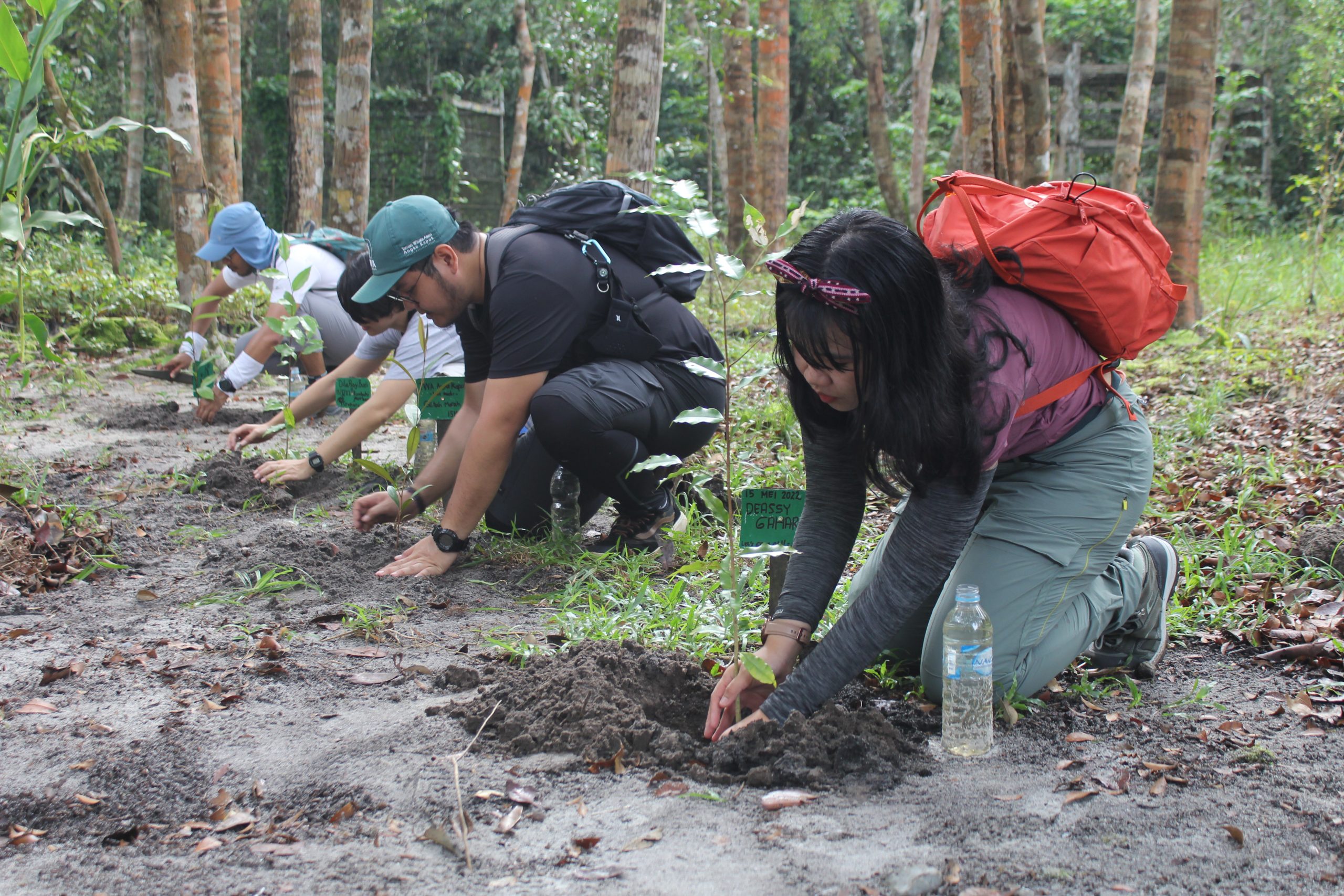In recent years, there has been a growing paradigm shift in the tourism industry, with more travelers seeking ways to minimize their social and environmental impact. The depletion of natural resources and the destruction of natural areas due to mass tourism have raised global concerns, prompting the rise of sustainable tourism. As part of this movement, ecotourism has emerged as a powerful approach that not only promotes conservation but also empowers local communities and fosters deeper connections between people and nature, while regenerative travel takes it a step further by actively restoring and revitalizing ecosystems and local cultures.
However, the term “ecotourism” has increasingly lost its true meaning and is often misused—frequently applied to destinations that simply feature abundant trees or green spaces, despite true ecotourism being much more than that. This article explores how ecotourism serves as a foundational step toward regenerative travel, guiding travelers toward more responsible tourism choices that actively benefit the environment and local economies.
what is ecotourism?
Ecotourism is a form of sustainable travel that prioritizes nature conservation, cultural preservation, and local economic development. It aims to minimize the negative impact of tourism while enhancing travelers’ appreciation for protected areas, biodiversity, and indigenous cultures.
According to the Global Ecotourism Network (GEN), ecotourism encourages activities that directly support environmental conservation and local economies. This includes staying in eco-friendly accommodations, participating in wildlife conservation efforts, and choosing tour operators who prioritize sustainability.
Unlike conventional tourism, which often leads to the degradation of natural resources, ecotourism fosters a balance between economic growth and environmental responsibility. It ensures that tourism benefits local communities rather than exploiting them, creating a more ethical and sustainable industry.
principles of ecotourism
Ecotourism operates on three fundamental principles: environmental conservation, local community empowerment, and sustainability education. These principles ensure that tourism activities contribute positively to both nature and local cultures.
- Environmental Conservation
Ecotourism emphasizes protecting natural areas and minimizing ecological disruption. This includes:
- Supporting wildlife conservation programs.
- Choosing accommodations that use renewable energy and reduce waste.
- Avoiding activities that negatively impact protected areas, such as unethical wildlife interactions or excessive carbon emissions.
- Local Community Empowerment
A key aspect of ecotourism is ensuring that local economies benefit directly from tourism. This is achieved by:
- Encouraging travelers to purchase locally-made products and support local artisans.
- Promoting community-led tourism that provides employment opportunities.
- Respecting and preserving local culture and traditions.
- Education and Awareness
Education is central to ecotourism, as it helps travelers develop a deeper appreciation for sustainability and conservation efforts. This involves:
- Raising awareness about biodiversity conservation.
- Encouraging travelers to adopt responsible travel practices.
- Providing immersive cultural experiences that highlight the importance of sustainable travel.
benefits of ecotourism
By following these principles, ecotourism contributes significantly to both environmental protection and social well-being. Some of its key benefits include:
- Restoring Natural Habitats & Protecting Wildlife
Ecotourism plays a vital role in biodiversity conservation by generating funds for protected areas and wildlife sanctuaries. It helps combat issues such as habitat destruction, illegal poaching, and deforestation. Many eco-tour operators integrate sustainable tourism practices such as:
- Using carbon offset programs.
- Providing eco-friendly transportation options.
- Implementing energy-efficient and waste reduction strategies.
- Boosting Local Economies
Ecotourism directly supports local economies by
- Creating jobs for local communities.
- Encouraging sustainable business practices.
- Promoting fair wages and ethical labor conditions.
- Preserving Cultural Heritage
By engaging in ecotourism, travelers contribute to the preservation of local traditions, languages, and heritage. This helps communities maintain their unique identities while benefiting from sustainable tourism.
Also read: Dampak Travel Positive bagi Pelestarian Budaya
the evolution from ecotourism to regenerative travel
While ecotourism lays the foundation for responsible travel, regenerative travel takes it further by actively restoring ecosystems and empowering communities. Rather than just minimizing harm, regenerative travel focuses on creating positive impact.
what is regenerative travel?
Regenerative travel is a transformative approach to tourism that goes beyond sustainability by actively restoring and improving the environment and local communities. Unlike conventional travel, which oftentimes exploitative, regenerative travel aims to heal ecosystems, revitalize cultures, and strengthen local economies.
This travel model encourages travelers to participate in conservation projects, support local artisans, and engage in community-driven tourism. By choosing regenerative tourism experiences, travelers contribute to long-term environmental and social well-being, making destinations better than before.
key differences between ecotourism and regenerative travel
While ecotourism focuses on minimizing harm, regenerative travel goes further by actively improving and restoring destinations. Here’s how they differ:
Ecotourism:
- Focuses on conservation and minimizing environmental harm.
- Aims to preserve natural areas without disrupting ecosystems.
- Follows a low-impact tourism approach, where travelers strive to reduce their footprint on the destinations they visit.
Regenerative Travel:
- Emphasizes restoration and community empowerment.
- Not only preserves but also actively improves ecosystems and supports local communities.
- Encourages travelers to take part in conservation efforts through hands-on participation.
By choosing regenerative travel, we can move beyond “sustainable” tourism and create a thriving future for nature and communities alike.
how travelers can make a difference
Every traveler has the power to create positive impact through conscious travel choices. Here’s how:
- Choose Responsible Destinations & Tour Operators: Opt for destinations and tour operators committed to environmental conservation, fair trade, and community development.
- Reduce Your Carbon Footprint: Travel sustainably by choosing public transport, biking, or walking instead of carbon-heavy options.
- Support Local Sustainability Efforts: Volunteering for reforestation and conservation projects, supporting local artisans and businesses, staying in eco-lodges that prioritize sustainable practices.
By taking these steps, travelers help create a more sustainable and regenerative travel experience, ensuring that their visits leave a lasting positive impact on both the environment and local cultures.
sejiva’s contribution in initiating change
Sejiva is committed to transforming the tourism industry through its three core values: People, Nature, and Culture. As a platform dedicated to sustainable tourism, Sejiva connects travelers with eco-friendly accommodations, ethical tour operators, and immersive nature-based experiences. By partnering with local communities and conservation organizations, Sejiva ensures that every journey contributes to both environmental and economic well-being.
At the heart of this mission is Travel Positive, a movement that embraces Regenerative Travel—going beyond sustainability to actively counter the negative impacts of mass tourism. This initiative encourages travelers to not only explore but also give back, fostering deeper connections with nature, culture, and local communities.
A key aspect of Travel Positive is the Impact Trip, a travel experience designed to inspire, educate, and empower. Unlike traditional vacations, Impact Trips allow travelers to engage in meaningful cultural exchanges, support local economies, and learn from indigenous wisdom.
However, an Impact Trip is not for everyone. It’s for those who truly value sustainability, are willing to step out of their comfort zones, and show empathy toward the places they visit. Responsible travelers consider the impact of every decision—from choosing eco-friendly accommodations to supporting small businesses and reducing their carbon footprint.
conclusion
Travel should be more than just an escape—it should be a force for good. By embracing regenerative travel, we shift from being passive tourists to active participants in restoring ecosystems, uplifting local communities, and preserving cultural heritage.
Rather than simply enjoying nature, travelers can contribute to its renewal—choosing responsible travel practices that ensure destinations thrive for future generations. The future of tourism lies not just in sustainability, but in regeneration.
Let’s change the way we travel from conventional tourism to #TravelPositive! Travel with purpose, leaving places better than we found them.










